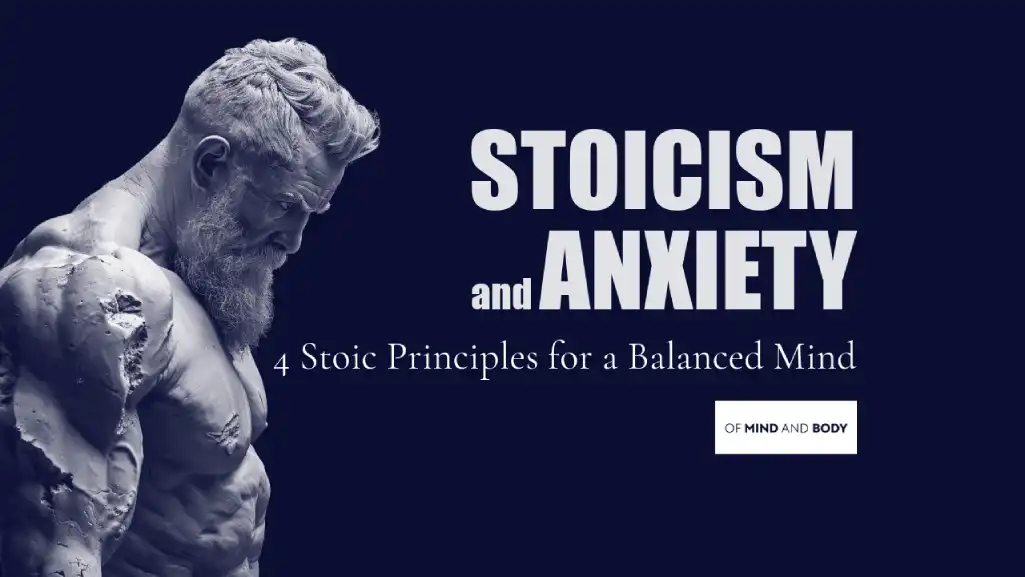
What does Amor Fati Mean?
Amor Fati, is a Latin phrase meaning “love of fate,” it encapsulates a profound Stoic principle that encourages embracing everything that happens in life—joy, suffering, success, and failure alike.
The concept was embraced by the Stoics of ancient Greece and Rome, such as Epictetus and Marcus Aurelius, who taught that by accepting and loving our fate, we align ourselves with the rational order of the universe.
The idea gained further depth and complexity with the contributions of Friedrich Nietzsche, a 19th-century philosopher who reinterpreted Stoic ideas through his existential lens. Nietzsche’s take on Amor Fati went beyond mere acceptance, advocating for a love of fate so complete that one would not only welcome every moment of life but also wish it to recur eternally. He famously stated:
“My formula for greatness in a human being is amor fati: that one wants nothing to be different, not forward, not backward, not in all eternity”.
Nietzsche
This perspective invites a radical engagement with life, encouraging individuals to see the inevitable challenges they face not as obstacles but as integral elements of their existence.
By weaving together the teachings of the Stoics with Nietzsche’s expansions, Amor Fati emerges as a powerful ethos aimed at achieving personal greatness and inner peace.
Philosophical Underpinnings of Amor Fati
The philosophy of Amor Fati is deeply rooted in the teachings of Stoicism, a school of philosophy that flourished in ancient Greece and Rome. Central to Stoic thought is the belief that humans should live in harmony with nature, accepting all occurrences as part of a divine rational order.
Epictetus, a slave-turned-philosopher, articulated this as living in agreement with nature, where one accepts the events of life with dignity and grace, not because they are necessarily good, but because they are natural, inevitable, and beyond personal control.

Marcus Aurelius, the Roman emperor and philosopher, also echoed this sentiment in his personal writings, where he pondered the nature of fate and the human condition. His reflections suggest that Amor Fati is not just about love for one’s own fate, but a cosmic acceptance, embracing the fate of the universe as one’s own, thus achieving peace through unity with the cosmos.

Friedrich Nietzsche, however, took these Stoic principles and injected them with a more existential flavour. He criticised the Stoics for their somewhat passive acceptance of fate and proposed instead a more dynamic engagement with life.
Nietzsche’s concept of Amor Fati goes beyond mere acceptance, advocating for a fervent love of fate. This love is characterised not just by resilience in the face of adversity, but by a joyful affirmation of life, even in its darkest moments. He saw this as essential to human greatness, stating;

Nietzsche’s reinterpretation of Stoic thought highlights a crucial aspect: Amor Fati is not about resignation to fate; it’s about an active, enthusiastic embrace of life’s challenges and the lessons they bring. This philosophical stance offers a pathway to personal growth and resilience, turning what could be perceived as negative experiences into opportunities for profound self-improvement.
Core Principles of Amor Fati
Amor Fati encourages not just acceptance of life’s events but their enthusiastic embrace as essential to one’s personal narrative and growth. This philosophy is anchored in the belief that every event, whether perceived as good or bad, is part of a larger, necessary arc in the tapestry of life. A shift in perspective of this nature can have truly profound impacts on our outlook on life. Here we explore the key principles that underpin Amor Fati and illuminate its transformative potential.
1. Enthusiastic Acceptance:
Unlike mere resignation or stoic endurance, Amor Fati suggests a joyful acceptance of fate. This doesn’t imply a passive surrender to circumstances but an active celebration of them. This principle is vital because it transforms the inevitable into a source of strength. Each moment, challenge, or setback is seen not just as something to endure, but something to welcome with open arms.
2. The Good and The Bad as Indistinguishable:
In the eyes of Amor Fati, the traditional labels of “good” and “bad” events are blurred. What might initially appear disastrous could lead to unforeseen benefits. Thus, adopting Amor Fati means recognising that life’s trials are opportunities for enhancement, pushing individuals towards resilience and wisdom.
3. Love of Fate as a Teacher:
Every incident in life, according to Amor Fati, teaches us something valuable. This approach encourages individuals to find lessons and meaning in all experiences, fostering a mindset of continuous learning and adaptation. The Stoics believed that this learning is what aligns us more closely with the natural order, enhancing our understanding and acceptance of the world as it is.
4. A Cycle of Reaffirmation:
Friedrich Nietzsche’s enhancement of Amor Fati includes the desire for an eternal recurrence of all life’s events. This radical acceptance goes beyond making peace with one’s circumstances; it involves embracing them with such vigour that one would willingly relive them exactly as they occurred, without alteration. This notion challenges individuals to live their lives in such a manner that they would gladly repeat every moment forever.
By integrating these principles, individuals can begin to see life’s inevitable difficulties as integral to their personal and philosophical development.
Practical Applications of Amor Fati
Implementing Amor Fati in everyday life can transform how we perceive and interact with the world around us. By applying the principles of enthusiastic acceptance, learning from every circumstance, and seeing the indistinguishable nature of good and bad, we can cultivate a resilient and fulfilling life.
Here are some practical ways to embrace Amor Fati:
1. Facing Personal Challenges:
When confronted with personal setbacks such as job loss or relationship difficulties, instead of succumbing to despair, use Amor Fati as a lens to view these events as opportunities for personal growth and self-discovery. For instance, a job loss can be seen as a chance to reassess career goals, learn new skills, or even start a business. This shifts the focus from loss to potential gain.
2. Daily Inconveniences:
Smaller, daily frustrations like traffic jams or long queues can serve as perfect moments to practise Amor Fati. Instead of reacting with annoyance, accept these situations with serenity and use the time to practise mindfulness or enjoy some unplanned solitude. This helps build patience and keeps stress levels in check.
3. Health and Wellbeing:
Health setbacks, while challenging, can also be approached with Amor Fati. This might mean embracing the lifestyle changes necessitated by a new health diagnosis as a new way of living that could lead to healthier habits or a more conscious approach to physical well-being.
4. Interpersonal Relationships:
In relationships, conflicts and misunderstandings are inevitable. Amor Fati teaches us to accept these challenges as part of the relational landscape and to learn from them, thereby enhancing understanding and compassion between individuals. This approach can transform conflicts into valuable lessons that strengthen bonds.
5. Long-Term Goals and Setbacks:
When long-term projects or goals face obstacles, the philosophy of Amor Fati encourages a reassessment of these hurdles as necessary steps toward success. Each challenge along the way is an integral part of the journey, providing insight and direction that refines the final outcome.
By applying Amor Fati in these varied aspects of life, we not only cope with adversities more effectively but also transform potential negatives into positives, aligning more closely with a Stoic approach to a well-lived life.
Benefits of Embracing Amor Fati

The philosophy of Amor Fati can enrich your life immensely, helping you to grow personally and feel more content. By embracing everything that happens to you, both good and bad, you can build up your mental resilience, increase your happiness, and lead a life filled with deeper meaning.
Here’s a look at some major perks of making Amor Fati a part of your approach to life:
1. Enhanced Resilience:
By accepting and even welcoming the challenges life presents, individuals practising Amor Fati build a strong foundation of resilience. This robust emotional strength helps them navigate life’s ups and downs with greater ease and less distress.
2. Increased Life Satisfaction:
Amor Fati leads to higher life satisfaction by shifting focus from what we cannot control to finding joy and purpose in what we can influence. By embracing the good with the bad, and the joy with the sorrow, we can learn to appreciate life’s full spectrum, which often leads to a deeper sense of fulfilment and happiness.
3. Better Stress Management:
Viewing life’s inevitable stresses through the lens of Amor Fati can transform our emotional responses to them. Instead of feeling overwhelmed by stress, we find ways to use stressful situations as opportunities for growth and learning. This shift in perspective can significantly alleviate the psychological impact of stress and promote a calmer, more composed mindset.
4. Ethical Growth and Moral Wisdom:
Amor Fati is deeply connected with ethical living and moral wisdom. By constantly seeking to learn from every situation, we can evolve our understanding of right and wrong and how best to act in various circumstances. This ongoing ethical engagement not only improves personal character but also enhances interpersonal relationships and societal interactions.
5. A Path to Personal Freedom:
One of the most profound benefits of Amor Fati is the personal freedom it offers. This philosophy liberates us from the tyranny of our desires and fears, allowing us to live with a peace that comes from accepting life unconditionally. This acceptance enables a life lived in the present, free from the burdens of past regrets and future anxieties.
Exploring the Challenges and Real-World Issues with Amor Fati
Amor Fati (“love of fate,”) is a powerful concept that can lead to significant personal growth and resilience. However, it’s not without its challenges and potential downsides.
Understanding these can help us use the philosophy more wisely in everyday life.
1. The Risk of Being Too Passive:
One of the biggest concerns about Amor Fati is that it might make people too passive. If you believe everything is fated, you might not bother to change things that are within your power to improve. Critics worry this could lead to a kind of fatalism—where people just accept bad situations as they are, without trying to make them better.
2. Accepting Fate is Hard:
Embracing Amor Fati is not easy. It requires a deep emotional and psychological strength to truly love everything that happens, particularly during tough times or unfair situations. It’s a complex journey to reach this level of acceptance, and not everyone is ready or able to undertake it, especially in a society that often values control and certainty.
3. Misunderstandings and Misuse:
Amor Fati is a profound idea, but it can be misunderstood or oversimplified. Sometimes people might use it as an excuse for not acting when they really should—like in situations involving ethical decisions or social justice issues.
4. Finding the Right Balance:
It’s crucial to strike a balance between accepting things you can’t change and taking action on the things you can. Nietzsche, a big proponent of Amor Fati, believed that we should still try to create meaning and exert our will, even within the constraints of fate. The challenge is to engage dynamically with life’s challenges, not just passively accept them.
5. Handling Emotional Complexity:
Loving one’s fate involves managing a wide range of emotions—joy, sadness, anger, and acceptance—all at once. It can be overwhelming and difficult to keep this balance consistently over time. Developing such emotional complexity is a lifelong task that requires continuous self-reflection and adjustment.

Final Thoughts
Life is full of challenges and rewards, embracing Amor Fati is a path to living life to its fullest. By embracing this philosophy we can transform our experience of the world, and shift our own narrative to one of greater resilience and acceptance.
Let us take these lessons to heart, striving to turn every moment of our lives into an opportunity for growth and deeper understanding.















One Response
Good